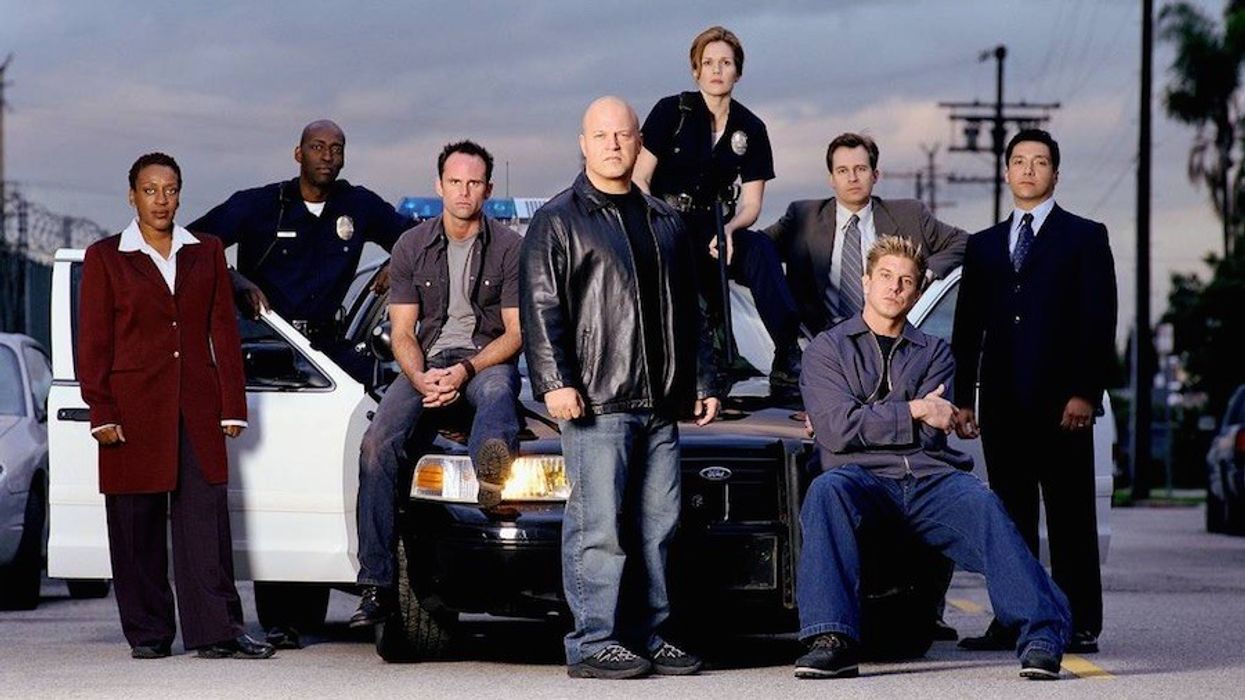Five Questions Your TV Pilot Should Answer
TV pilots need to answer these five crucial questions to even be considered for a sale or staffing…

'The Shield'
When an agent, producer, manager, or executive read your TV pilot a myriad of thoughts will run through their minds. If you’ve written something compelling and refreshing most of these thoughts will be great, but if your pilot misses the mark they’ll be less thrilled.
No matter the case, there are five big questions asked of every TV pilot.
Today we’re going to go over those five questions and give some advice on how to beat the reader and make sure you get out ahead of the game.
1. Where is the story going?
The biggest question people have after reading your pilot or writing sample is where the story will go. We call that idea “legs,” because we need to see that the series can make a long run if it is committed to getting a pilot or even a first season.
So how do you know if your idea has legs?
For procedural shows, like CSI or even sitcoms like Man With a Plan, you want to know that the characters or environment will be meaty enough to have a problem of the week for people to solve.
Everyone on a network like CBS, ABC, NBC, and FOX are hungry for shows that can last 100 episodes. So give them a workplace or home environment that they think can carry that weight.
Cable is a little different.
They want dramas or comedies that have sustainable stories but also subvert expectations. Shows like Fargo and Barry have narratives we know will generate episodes, but those pilots are completely focused on entrenching us with characters and mysteries we want to see play out.
That brings us to another big question…

2. Who are we following?
People continually tune into television to watch characters they find interesting. Shows like The Office and The Wire may seem like complete opposites but at the heart of them are lots of characters who are unique and interesting.
If you have an ensemble show, like Parenthood or Friends, you want to meet all the characters and justify why people will love tuning in.
What makes these people unique?
How will this show give a new perspective unlike what’s already on the air?
This is your chance to show why you stand out from the crowd.

3. What’s the genre and tone?
Nowadays, genre and tone are pretty flexible. If your show was 30 minutes long, it used to mean it was a comedy. And hour-longs were dramas.
That’s not the case now. Especially in streaming and cable.
There are so many opportunities for mash-ups like Buffy or Transparent, so be confident in what you put on the page and know that being bold is often rewarded.
No matter what - make sure the audience absolutely knows why they are tuning in and what they can expect.
Your show should clearly define the tone and genre right away, so the reading party can answer our next question…

4. What channel would this play on?
TV networks are generally open to lots of different ideas, but each one does have a mandate they have to fill. Broadcast TV networks are always looking for sitcoms and procedurals to fill their airwaves.
Those shows usually are light on cursing, drugs, and sex. They aim to have families watch together or be the show parents watch after kids go to bed.
Cable and streaming are the Wild West.
It’s hard to imagine a sitcom on HBO, but Netflix buys tons of them. Still, HBO loves a show like Curb Your Enthusiasm, which takes typical sitcom elements and adds adult themes.
Amazon and Hulu have both traditional hour-longs and also genre and tone-bending ideas like The Boys and Veronica Mars.
So make sure you write for intention. Don’t do a Full House knock-off and add one “F” word in there. Who knows where that goes?
If your tone and genre are clear, then the person reading should understand which channel fits the best.

5. Does this writer have what it takes?
When someone picks up a script to read, the first thing they see is the title, followed by your name. Once they’re done the reading, if they liked it (or maybe abhorred it), they’re going to Google you. They will look at your social, your blog, your website, and generally see if they have mutual friends and ask them about you.
Your reputation and talent are on the line.
I have had this come up recently in a few meetings and I think it’s totally worth mentioning here. People looking to buy or to staff will check out your presence online. They’ll want to know if you seem positive or negative if you’re politically inclined, post nasty comments about other people, or generally fit with the vibe they want.
If you’re working on a TV show you want to make sure the relationship lasts as long as possible. That means wanting someone you think is amazing to be around and can kick ass in the trenches with you.
That doesn't mean they want wishy-washy or people who are not opinionated but think about how you say things online and who you say them to.
What’s next? Learn how to write a TV pilot!
Hundreds of pilots sell to networks and streaming services every year. What's stopping you from selling your idea?
Click the link to learn more!

 "'Back Home"via Mercedes Arutro
"'Back Home"via Mercedes Arutro 'Back Home'via Mercedes Arutro
'Back Home'via Mercedes Arutro 









